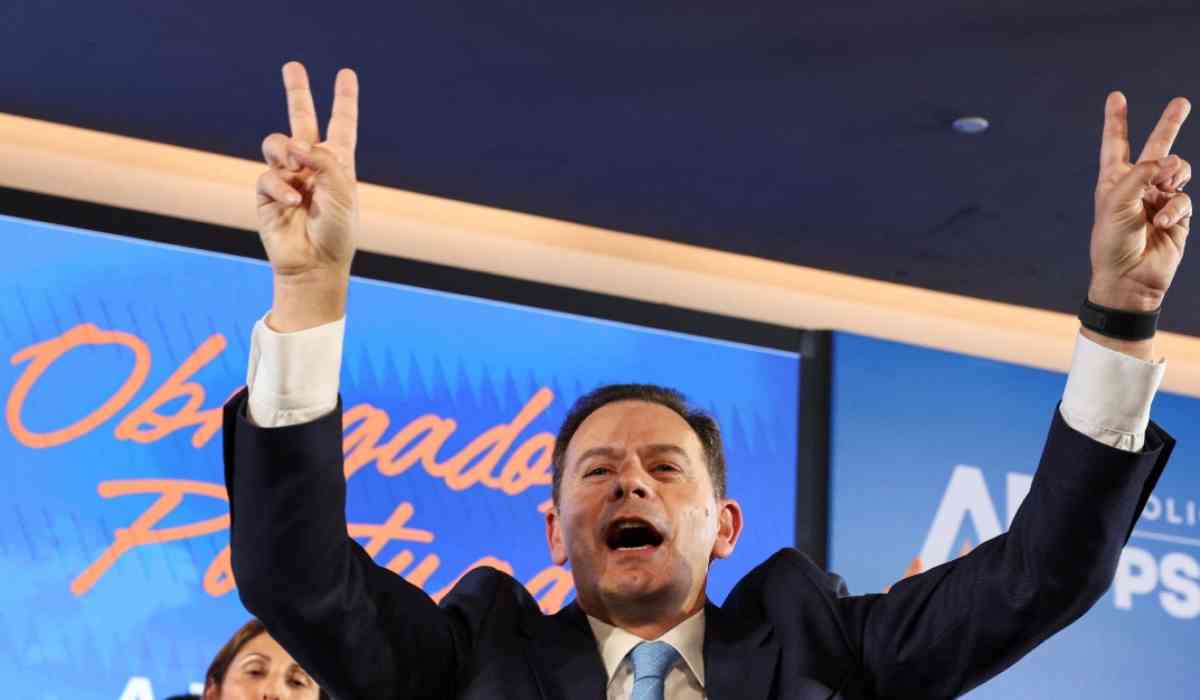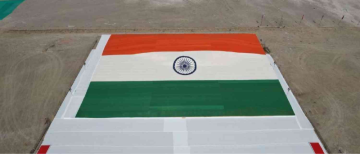Portugal’s political landscape continues to evolve dramatically as the country faces its third general election in as many years. The election, held amid political turmoil and increasing public dissatisfaction with traditional parties, delivered a fragmented verdict: the center-right Democratic Alliance (AD), led by incumbent Prime Minister Luís Montenegro, emerged victorious but failed once again to secure a parliamentary majority.
The result has not only ensured that Portugal is heading for yet another minority government but has also solidified the rise of the far-right populist party Chega, which is poised to reshape Portuguese politics in the years to come.

Background: A Snap Election Triggered by Political Crisis
The 2024 election was called early after Prime Minister Luís Montenegro lost a vote of confidence in March, barely a year into his term. The vote was triggered by the opposition over integrity concerns related to Montenegro's family-run consultancy firm. Montenegro has denied any wrongdoing, and the controversy sparked intense political debate.
With Portugal grappling with issues like immigration, housing, and cost of living, public frustration over continuous instability led to increased voter participation, despite growing cynicism over whether a stable government would emerge from yet another election cycle.
Election Results: Democratic Alliance Wins, But No Majority
With 99.2% of votes counted, the Democratic Alliance secured 89 seats, an improvement over the 80 seats won in the previous election, but still 41 seats short of a parliamentary majority.
-
Democratic Alliance (center-right): 89 seats
-
Chega (far-right populist): 58 seats (up from 50 last year)
-
Socialist Party (center-left): 58 seats (down from 78 in 2022)
This outcome has further fragmented Portugal’s political landscape and left the AD facing yet another term as a minority government, vulnerable to being brought down by opposition coalitions, as happened earlier this year.
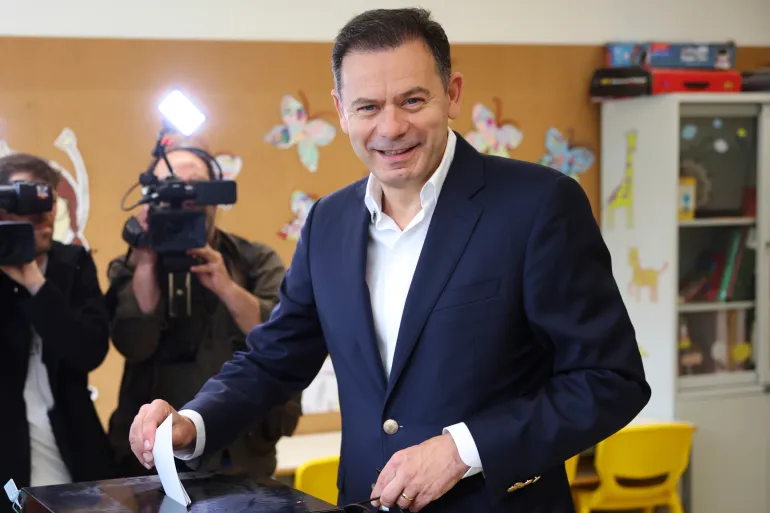
Democratic Alliance Wins Without Majority
With 99.2% of domestic votes counted, the Democratic Alliance secured at least 89 seats in Portugal’s 230-seat National Assembly—just nine more than in the previous election, but still far short of the 116 seats required for a majority.
Montenegro’s coalition, led by the Social Democratic Party (PSD) and including the smaller Popular Party, failed to consolidate enough support to form a majority government. This follows a previous short-lived minority government that collapsed when opposition parties teamed up against it in a confidence vote.
Montenegro addressed supporters, saying:
“We all have to be able to speak to each other and put the national interest first.”
He also declared:
“The Portuguese don’t want any more snap elections; they want a four-year legislature.”
Rise of Chega: From Fringe to Mainstream
Perhaps the most striking result of the 2024 election was the meteoric rise of the far-right Chega party, which secured 58 seats, up from 50 last year. Led by Andre Ventura, a former lawyer and football commentator, Chega is now tied with the Socialists as the second-largest party in the Portuguese Parliament.
This outcome represents a seismic shift in the country’s political dynamics, ending decades of near-exclusive dominance by the Socialists and Social Democrats.
“We didn’t win this election, but we’ve made history,” Ventura told jubilant supporters. “This is my moment. It’s a great victory for Chega.”
Chega ran a campaign under the slogan “Save Portugal”, promoting a nationalist agenda and focusing on curbing immigration and cracking down on corruption. Ventura signaled willingness to work with the Democratic Alliance, stating the country needs stability.
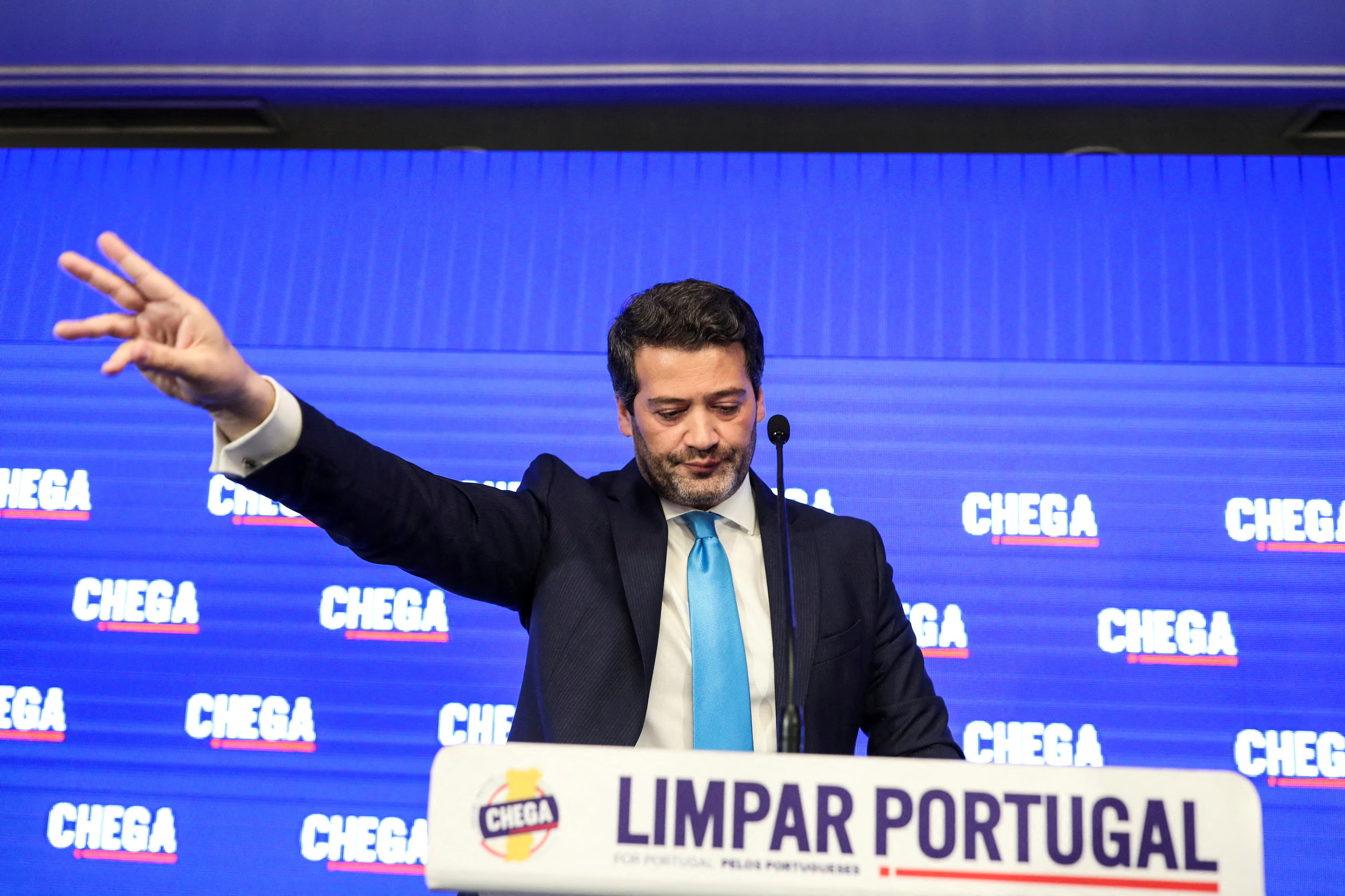
Socialists Suffer Major Blow
The Socialist Party, one of Portugal’s traditional powerhouses, experienced its worst electoral performance since 1987, dropping from 78 to 58 seats. Despite securing just 50,000 more votes than Chega, they now risk losing their status as the official opposition for the first time in nearly 40 years.
Following the disappointing results, Socialist leader Pedro Nuno Santos announced his resignation and criticized the outgoing government’s pre-election deportation of 18,000 undocumented immigrants as a political ploy.
He referred to it as a:
“Trumpification” of Portuguese politics.
Key Issues Influencing the Election
1. Immigration
Portugal has seen a sharp increase in immigration over the past six years:
-
In 2018, there were fewer than 500,000 legal immigrants.
-
By early 2024, the number had surpassed 1.5 million, with most newcomers being Brazilians and Asians working in tourism and agriculture.
The government's controversial announcement to expel 18,000 undocumented foreigners just two weeks before the election was widely criticized and perceived as an attempt to attract voters from Chega’s base.
2. Housing Crisis
Housing emerged as another major issue during the campaign:
-
Home prices jumped 9% in 2023 alone.
-
Rents in Lisbon and surrounding areas soared more than 7%, marking the steepest increase in 30 years.
The housing crisis is worsened by:
-
An influx of wealthier foreign residents, driving up demand and prices.
-
The country’s low average monthly salary of €1,200 ($1,340) before tax.
3. Corruption
Corruption scandals have plagued both traditional parties, fueling the growth of Chega. Ironically, Chega itself has not remained unscathed:
-
One lawmaker was accused of stealing suitcases at Lisbon airport.
-
Another allegedly forged the signature of a dead woman.
Both members resigned, but the incidents dented Chega’s “zero-tolerance” anti-corruption image.
Political Deadlock and the Road Ahead
Portugal now faces the prospect of continued political instability:
-
The Democratic Alliance is unlikely to form a coalition with Chega due to ideological differences.
-
Montenegro has ruled out a formal agreement with the far-right.
-
Any minority government will need to negotiate piecemeal support to pass legislation, making governance complex and fragile.
Political analyst Adelino Maltez remarked:
“Bipartisanship is over… If democracy is in danger, Montenegro’s party and the Socialists should come to an agreement to govern in a grand coalition.”
However, such a coalition remains historically rare. The last instance of a grand coalition between center-left and center-right parties in Portugal occurred between 1983 and 1985.
Impact on Key National Projects
Further political instability could jeopardize:
-
Lithium mining projects in northern Portugal.
-
The long-delayed privatization of the national airline TAP.
Despite internal political woes, Portugal has outperformed many EU nations in terms of economic growth, budget surpluses, and debt reduction under both Socialist and Democratic Alliance governments.
A Fragmented Mandate and Uncertain Future
The 2024 Portuguese general election has deepened the country’s political fragmentation. While the Democratic Alliance remains in power, its inability to secure a majority, combined with the surge of Chega, signals a new era in Portuguese politics—one that is more polarized, unpredictable, and defined by shifting public priorities.
As the country awaits the final count from overseas ballots, which could potentially alter party standings, one thing is clear: Portugal's era of stable majority governments is over, and the road ahead will require dialogue, compromise, and resilience to navigate ongoing political and socio-economic challenges.
With inputs from agencies
Image Source: Multiple agencies
© Copyright 2025. All Rights Reserved Powered by Vygr Media.

